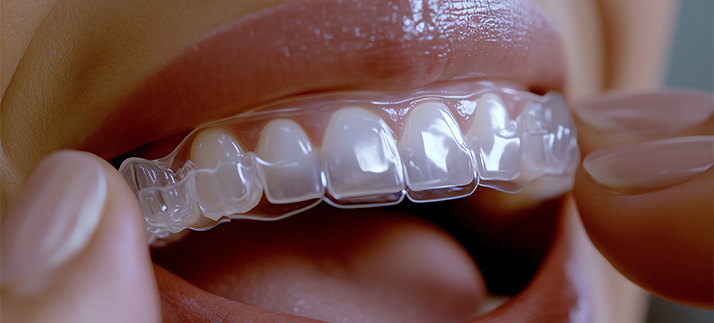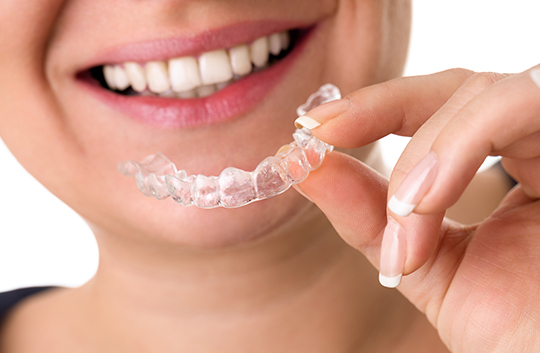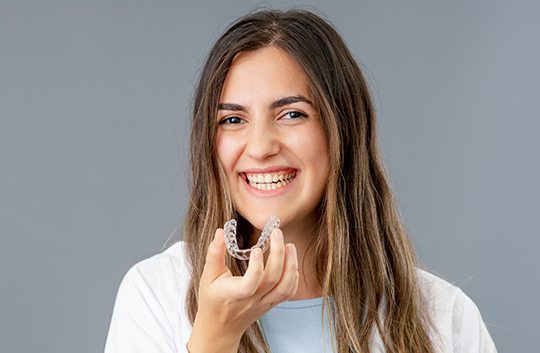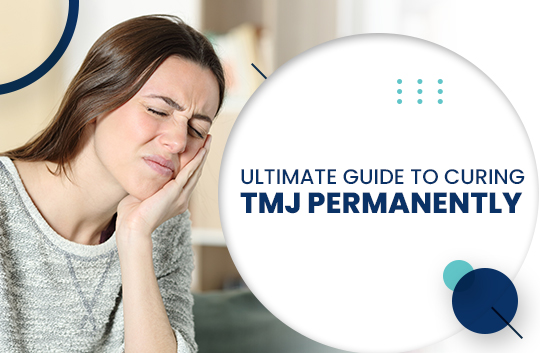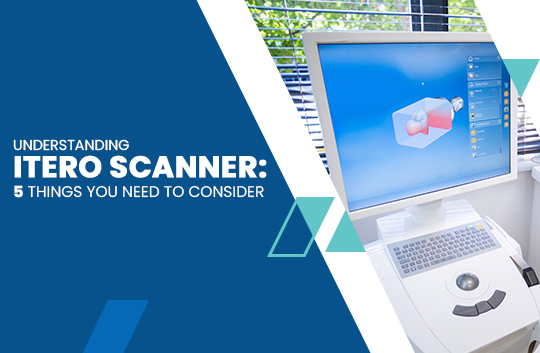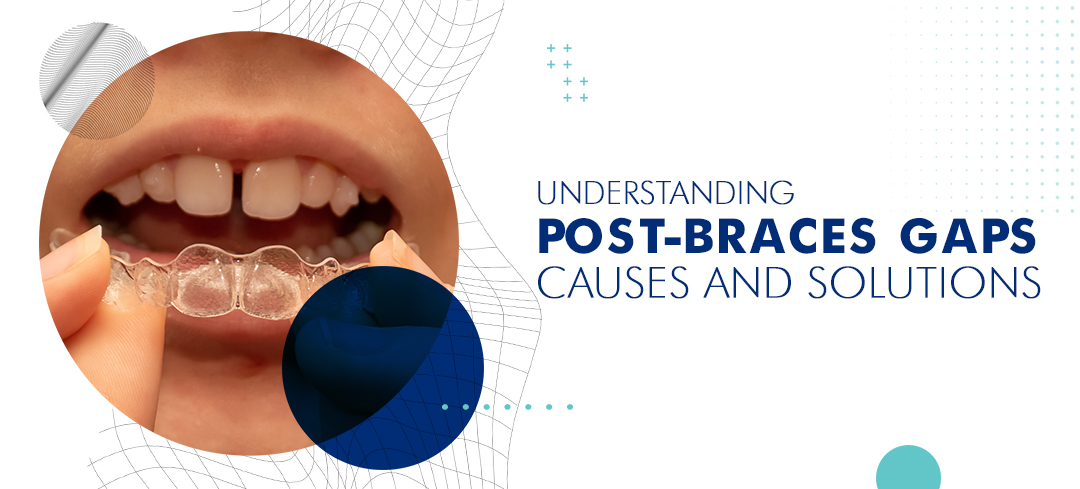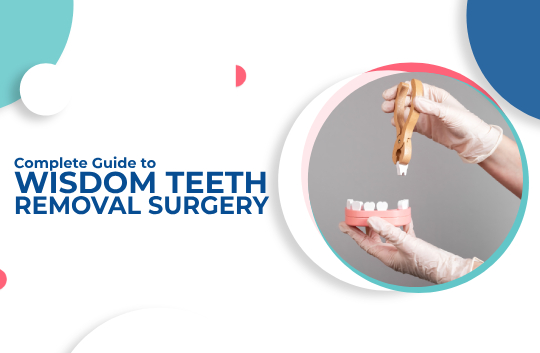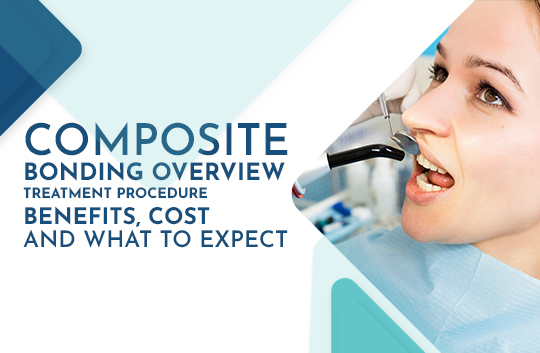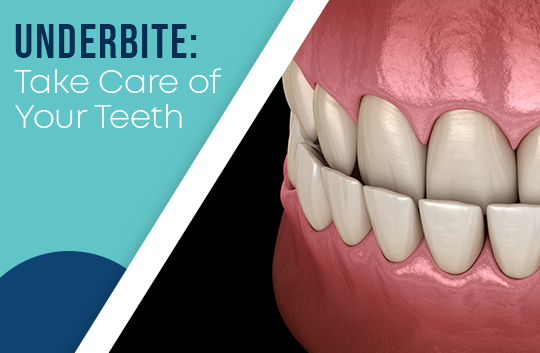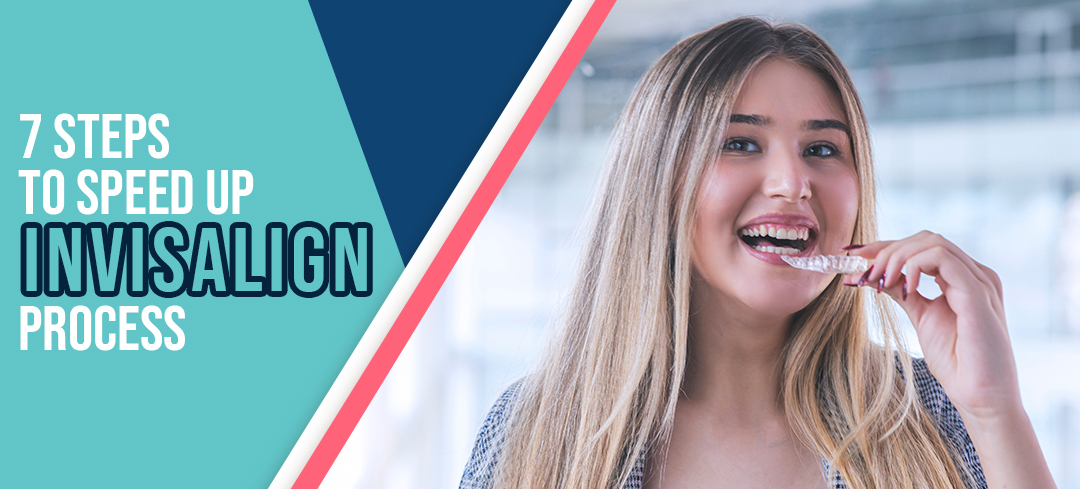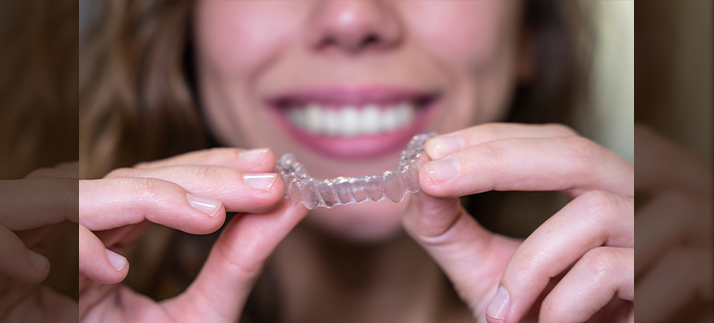
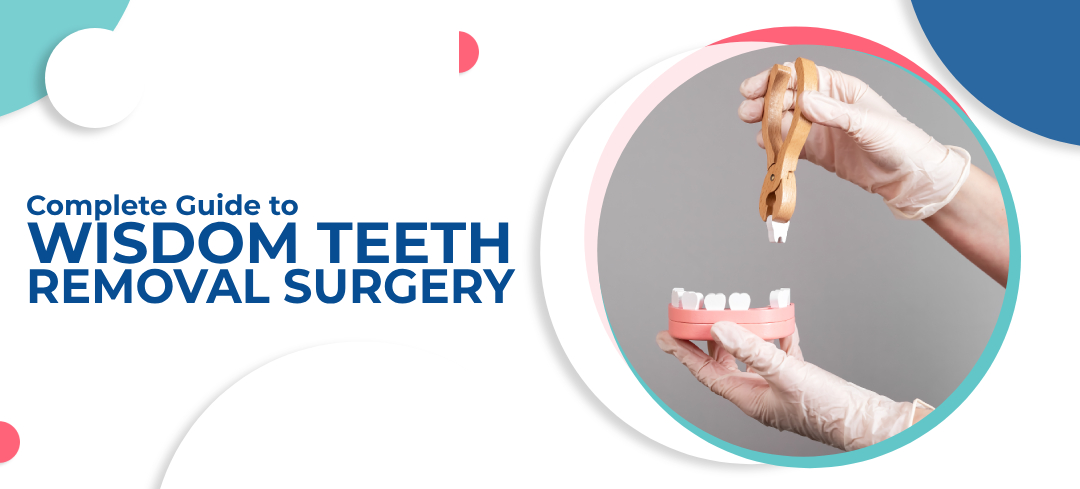
Complete Guide to Wisdom Teeth Removal Surgery
- What should you know about wisdom teeth removal surgery?
- How to prepare for the surgery
- What you should wear for the surgery
- Foods and drinks
- Medications
- What you should expect on the surgery day
- During the surgery
- After the Surgery
- Wisdom Teeth Removal Recovery
- Healing
- Coping up with recovery process
- Eating and drinking
- Possible complications
- Symptoms of your dry socket
- When you need to see a dentist
Wisdom teeth removal surgery or wisdom tooth extraction is term for a dental method used to tooth removal of the third set of molars. Popularly known as wisdom teeth, this surgery can be done when a tooth is decayed, infected, partially through, painful or impacted. The procedure is performed by giving local anaesthesia and the recovery may take near 1 to 3 weeks though people resume their activities in one or two days. Read on to know what you can expect when planning to perform wisdom tooth removal surgery which includes possible risks and other complications.
What should you know about wisdom teeth removal surgery?
Everyone will not have wisdom teeth though most people generally have one to four, they generally come through between the age group of 17 and 25. Teeth may generally get impacted which means there isn’t sufficient space for them to break through the skin and then emerge. By removing the tooth, you will be able to avoid further damage to your adjacent teeth.
The surgery for wisdom teeth removal is generally done by a dentist or oral surgeon. The method involves cutting into the gum and removing tooth either in pieces or an entire tooth. You are given anaesthesia to get rid of the pain. The surgeon decides which kind of anaesthesia to use based on the complexity of the procedure, level of comfort, and number of teeth to be extracted.

Purpose of wisdom tooth removal surgery
The dentist suggests wisdom tooth removal surgery when an oral examination denotes your wisdom teeth are currently suffering dental degeneration or have a problem that could lead to problems in future.
Other reasons for wisdom tooth extraction are the following:
- Damage to the surrounding teeth
- Oral infection
- Periodontal (gum) disease
- Signs of tooth decay
- Bone loss around your tooth roots
How to prepare for the surgery
The dentist will conduct the surgery or rare cases refer you to another specialist. They will tell how you can prepare for the surgery and recovery later. They may even discuss about the kind of anaesthesia they want to use and reason for it. The price of wisdom teeth removal surgery depends on the level of impaction and number of teeth to be removed.
You may prepare for the recovery by buying or making liquid or soft foods that are easy to eat. Some of these can be – oatmeal, smoothies, yogurt and other foods that you do not need to chew.
What you should wear for the surgery
Wear comfortable and loosely-fitted clothing for the surgery. If you take intravenous (IV) sedation, then choose a shirt that has short sleeves as you do not have to change it before surgery.
Foods and drinks
You need to follow the instructions of your surgeon for eating and drinking before the surgery. This can differ based on the kind of anaesthesia being used. If you take intravenous sedation, then you won’t be able to eat or drink anything after midnight the night before the treatment.
Otherwise with local anaesthetic it is good to eat your usual meals
Medications
The risk of bleeding problems increases by taking certain medications which include:
- Warfarin
- Aspirin
- Clopidogrel
You might have to stop these for at least one to seven days before conducting a surgery. Do not utilise tobacco and alcohol for at least eight hours before your surgery.
What you should expect on the surgery day
You should reach on the surgery day a minimum of 15 to 30 minutes for filling in the forms and settling over there. The surgeon may need to perform some X-rays.
During the surgery
The surgery may over 45 minutes and you should not feel any pain as anaesthesia will be used
Below are some steps to carry out the process of a wisdom tooth extraction:
- Oral or IV sedation: This is an option for some patient but quite uncommonly needed at our office.
- Local numbing: The surgeon begins numbing wisdom tooth and gums with local anaesthesia.
- Tissue resection: The surgeon removes gum tissue with the help of scalpel for exposing your wisdom tooth.
- Bone resection: You can either partially or fully cover impacted wisdom tooth with bone. Choosing a high-speed tool may drill through and remove your covered bone.
- Loosening and sectioning: After a wisdom tooth gets exposed, there are several surgical instruments which may loosen it gently from the connective tissue into your tooth's socket. The surgeon cuts the tooth into sections to remove them in an easy way.
- Tooth extraction: Once the tooth becomes loosened and sectioned, your surgeon uses instruments that have been particularly designed for the tooth extraction.
- Closure: Stitches can be used for the closure of wound. Nowadays, the oral surgeons use dissolvable stitches that do not require removal.
After the Surgery
Once the surgery is done, the dentist provides gauze to bite down on for helping with blood clot. If you had sedation you might feel mild affects of anaesthesia which immediately after the surgery. With local anaesthetic you will feel very numb for 2 to 4 hours.
After the surgery is done, you will feel swollen and might not experience pain immediately but after 1 or 2 hours. This will possibly increase when anaesthesia wears off after the surgery.
Take the recommended pain killers as soon as possible after surgery.
Wisdom Teeth Removal Recovery
During the first 24 hours after your surgery, you should:
- Avoid drinking with a straw or rinsing mouth forcefully
- Not drink alcohol or use a mouthwash containing alcohol
- Use a soft manual toothbrush than using an electric one
- Avoid brushing teeth next to your extraction site
There can be some swelling, bleeding and pain for several days after the surgery. You might not be able to open your mouth during this time. The extraction site may require at least six weeks to heal properly though most people can continue with their routine activities within one to two days.
Healing
The surgeon gives extra gauze to take home. In case you start bleeding after the removal of gauze, try folding another piece into a pad, moistening it with water and then holding or biting on it over the bleeding site till it stops completely.
It is important not to take alcohol for a minimum of 48 hours after the surgery, particularly if you are taking pain medication according to your dentist.
Coping up with recovery process
You need to take over-the-counter pain medications such as – ibuprofen and Paracetamol to eliminate the pain after a wisdom tooth extraction. Consider choosing cold compress on the face to overcome the swelling issue. Put extra pillows behind the head for elevating it above your heart to help with sleep during the first two days. This can decrease blood flow to your mouth and ease severe pain.
If the surgery was extensive then some stronger pain killers may be recommended.
Eating and drinking
During the first 24 hours after your surgery, you are advised to eat soft foods only such as – mashed vegetables and yogurt. Include soft foods in your diet such as –bread, oatmeal and eggs for one or two days.
Do not eat acidic, crunchy, chewy or spicy foods till you get healed completely. It helps to rinse mouth gently with warm salt water after you are done with eating and clean debris from the wound as well as lessen bacterial exposure.
Possible complications
Certain complications of wisdom teeth removal surgery are:
- Dry socket which occurs when blood clots in the tooth socket and gets dislodged by exposing the underlying bone
- Infection
- Shooting nerve pain
Symptoms of your dry socket
Some symptoms of dry socket include:
- Bad breath
- Severe pain radiating out from socket towards the face or neck
- Visible bone into your site of extraction
- Foul taste in your mouth
When you need to see a dentist
Talk to a dentist when there are dry socket symptoms or excessive bleeding.
You need to seek immediate care if there are any signs of infection such as:
- High fever having chills
- Pus-like discharge from wound
- Swelling of the face or gums
- Pain that does not go away by taking medication that is severe
Wisdom tooth removal treatment in London is a common dental method for teeth extraction from the third set of molars known as wisdom teeth. This outpatient procedure is generally done under mild anaesthesia. Full healing and recovery from a wisdom tooth extraction requires up to six weeks and you can return to work in one or two days.
It is possible to treat the pain by taking over-the-counter medication. It is advised not to drink alcohol for at least 48 hours and smoking should be stopped till the wound gets healed completely. Call your surgeon when you suffer from excessive bleeding or there are any signs of infection such as – chills, high fever, pus-like discharge and increased swelling.
 70 Great Russell St, Holborn, London WC1B 3BN, UK
70 Great Russell St, Holborn, London WC1B 3BN, UK



